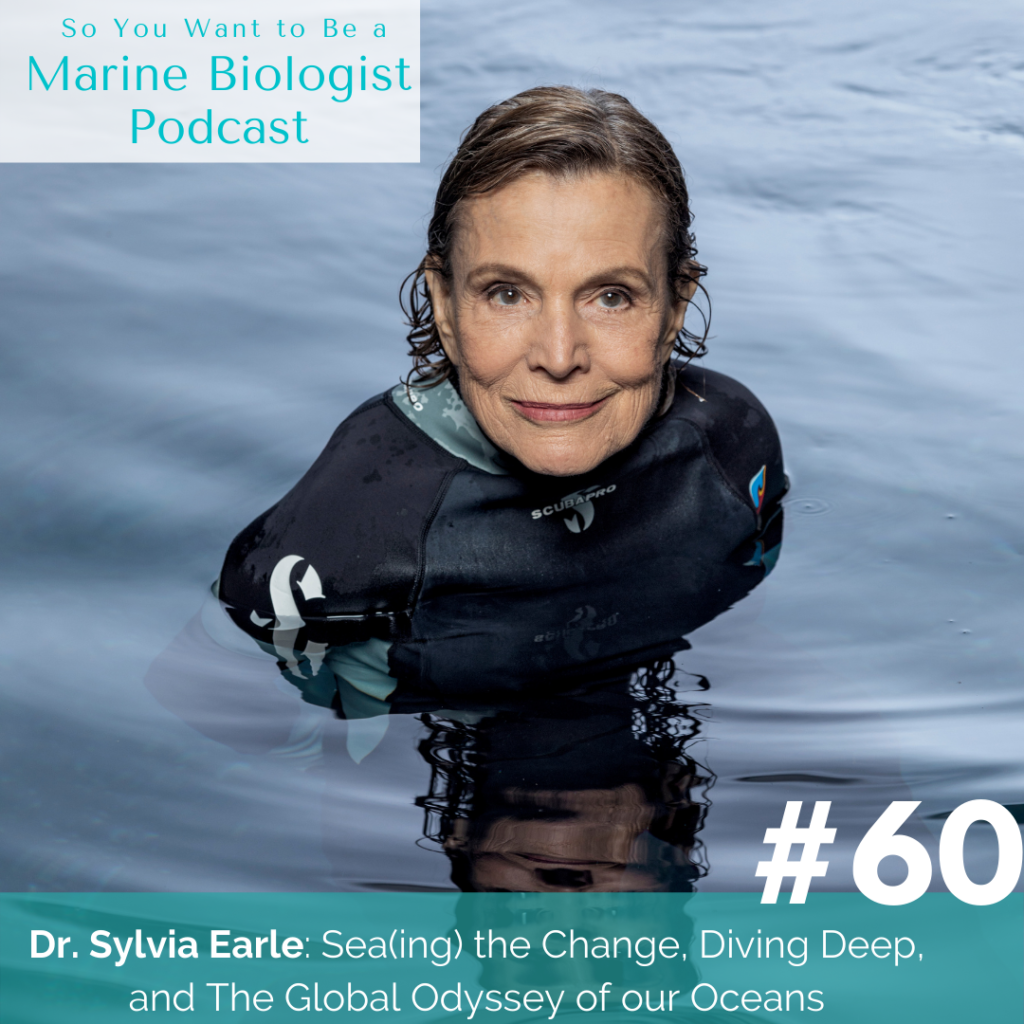Her Deepness, Dr. Sylvia Earle joins us on the show today. Sylvia is a marine biologist who has been deemed a Hero for the Planet and designated by the Library of Congress as a Living Legend. She has been a Nat Geo explorer since 1998, author of over a dozen books. Her TED talk has over 3m views. Sylvia led the first team of women living underwater, has thousands of research diving hours, and explored all over the world. She is also a personal hero of mine, and today’s show is a true honor to be able to present to you. In today’s episode we chat about how Sylvia is a witness to the oceanic changes in her lifetime, why no child should be left dry, and how by looking in the mirror, we can save our oceans and our blue planet.
Quick Links
Anton Bruun Research
Jane Goodall
Blue Mind
Tektite
Anthropocene
Ocean, a Global Odyssey
Dead Zones
Weather + Ocean
Underwater volcanoes
Hydrothermal vents
Azores
Stomatopod
Mission Blue
Hope Spots
Global Commons
Deep Sea Mining
Twilight zone
Show Notes
1:03 Sylvia speaks about the importance of having a mentor that believes in you, that can open doors and opportunities for you. She had that at an early stage of her career, exposing her to the new world that was scuba diving.
3:14 The real problem that Sylvia faced as the only female aboard a ship of seventy men was the inability to get a true snapshot of what was going on below the surface of the sea. Jane Goodall didn’t lower a net to capture chimpanzees and drag them up to her place in the sky, she lived with them. This is what has been missing in ocean research.
10:03 The greatest era of discovery is just beginning. Access to the greatest system on the planet is just not being able to be discovered. Only 15% of the ocean floor has been mapped, and a much smaller percentage has actually been seen. Astronauts understand their life support system- the air they breathe, the food they need- and do everything they can do to take care of it. Our blue planet is our life support system, and we still haven’t learned everything we need to know about how to maintain it.
15:42 Sylvia speaks about her Tektite mission in the early seventies, living underwater and conducting research around the clock. Initially, Sylvia had applied to the Tektite projects with a particular project in mind with her male colleagues. The project was accepted, but Sylvia was not. Fortunately, there were other women that did apply, and they ended up comprising the first all-women team to live underwater with Sylvia as their leader. What she found was that there was a fascinating, complex web of life under the sea.
20:12 Observing carefully, reporting honestly, and sharing what we see is how we progress. Learning things and passing it along. Sometimes we discover we’ve been wrong, and we discover what the truth is. You can call it science if you’d like, but it’s how humans have existed and progressed since we began.
23:15 Being alive, being human, and also being a scientist, Sylvia is a witness. A witness to the change that has happened in the oceans. She began diving at the beginning of the anthropocene, and has seen the changes happening in the ocean- changes that do not benefit us in the long run.
32:28 The joy of science: learning more, so we can do better. Sylvia and I chat about how we’re connected with nature. There is no “Humans” and then “Nature.” We’re all Nature. We rely on the ocean to transport heat, cold around the planet, drive rain, and generally make our planet habitable.
40:21 The last half century is arguably the greatest for exploration in all of human history. This is the time when you can be the agent of discovery. We know enough to know how much we don’t know, and we have the technology to fill in those gaps as a collective.
47:31 As NOAA Chief Scientist, Sylvia felt restricted in her ability to affect change. She explains how this is so and how she’s found her voice as a citizen. As a society, we have rules, regulations, and laws to govern us as we grow. This is good and necessary, but laws need to change as we change.
55:05 Everyone, as individuals, makes a difference. Everybody does. Whether it’s by what you choose to do or what you choose not to do. It’s all up to the now nearly 8 billion humans to determine what the Earth will be like. Want to help the oceans? Look in the mirror.
1:01:00 The goal is to have thirty percent of the world’s oceans protected by 2030. Sylvia explains how this can be done, what a Hope Spot is, and what it takes to transform a Hope Spot into a protected area. Why? You’re having an impact on the air you breathe!
1:07:54 Sylvia explains what her new book, “Ocean: A Global Odyssey” with National Geographic is all about. We start at the beginning with the characteristic stunning Nat Geo photography and images.
1:11:54 What would Sylvia use her unlimited research funds for? Explore the ocean! Go Deep! But specifically, the deep scattering layer that exists in the twilight zone of the ocean at around a thousand feet.
1:18:38 Sylvia’s favorite field story? The next one! The past is always prelude.
